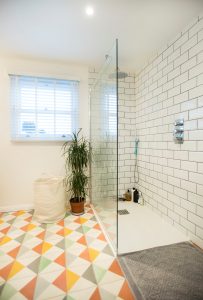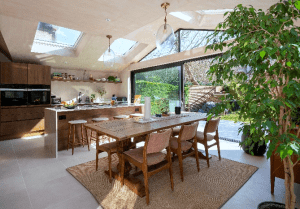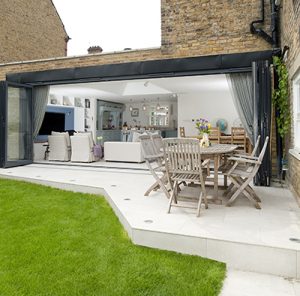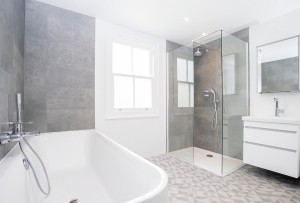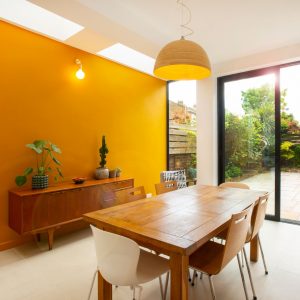A home renovation is a popular way to gain extra living space, improve quality of life and add value to your property. This can all be achieved without having the cost and disruption of moving! Once you have made the decision to make a home conversion, there are a number of decisions to make regarding size, style and floor plan.
Many homeowners find the whole idea of home renovation quite daunting. With some careful planning the renovation project timeline will run smoothly. In no time at all you can be enjoying the extra space a home construction can bring. What points are essential to prepare for renovation? Good planning is definitely the key to success. Here we bring you ideas and tips to ensure all goes really well with the renovation work.
1. Define Your Renovation Goals

Having decided a home renovation could be ideal, it is important to spend time researching the type of home renovations available. It is important to look at the sizes and the styles. There are many that will blend in perfectly with your house. It is important you full understand your wants and needs regarding a home extension. Consider window sizes and the amount of natural daylight you will need. Cost-effective heating is another consideration. You may need a design that gives you privacy from neighbours.
It is essential to look at the costs involved too and what packages are offered. Choosing a quality company with a reputation for excellence, will ensure that all aspects and costs are thoroughly discussed. This will ensure there are no nasty surprises further down the line. London-based Build Team is a well-established company that been trusted by more than 1,600 homeowners to design and build their extensions. Build Team offers a free first consultation with one of its design and planning consultants. Build Team also offers free online quotations.
Armed with all this information you will be able to set a realistic budget for your home renovation. You will be able to begin preparing for renovation work.
2. Get the Necessary Permits & Approvals
It is important to learn early on the regulations governing renovations in your area. These rules do vary according to the location of your property and can impact decisions on your renovation planning. It is the first essential step on how to prepare your home for renovation. Check early on whether you will need planning permission for your home renovation. Your local council will advise you on this.
If you are planning a large project that extends the property or alters its structure, then it is very likely that you will need planning permission. You can check the council’s requirements either online or by contacting them directly.
The timeline for receiving approval varies, but is generally 8-12 weeks. It is important to list this high on your pre-renovation checklist otherwise it cause delays with the start of renovations.
3. Declutter and Protect Your Home

This aspect is one of the key home remodelling tips. It really can make life so much easier and enable the workmen to work more quickly. Depending on the type of home renovation planning agreed, a key tip on how to prepare for renovation is to temporarily move furniture. Whilst it may be possible to move smaller pieces to another room, larger pieces or a sizeable amount of things, may need to be put temporarily into storage. If you don’t have a suitable garage this will need to be organised.
It is a good idea to move all valuable and fragile items well out of harm’s way. It is important to protect all furniture staying in situ with dust covers. You may well want to protect flooring too. It is important to move everything out of the workmen’s way so that they can quickly and easily move around. This will definitely make life easier for them.
4. Prepare for Renovation Disruptions
Part of the home renovation plan is to get ready for a period of domestic disruption! To prepare for renovation work includes thinking about ways in which the disruption can be minimised. Depending on the type of home renovation you are having, you may have to establish a temporary kitchen or living area. By doing this, there will be minimal impact on your family’s daily routine.
A major consideration whilst the work is being done is all the noise and dust. Dust sheets and air purifers will ease the dust problem and noise barriers can help reduce the impact of increased noise levels. It is a good idea to speak with your neighbours and explain to them about the building work and the renovation project timeline. The bottom line is that some careful planning will go a long way in maintaining a relatively peaceful environment during the home renovation process.
5. Hiring the Right Contractor

For your home renovation timeline to go well and the finished conversion to meet your expectations, you must choose the right building company. A key point when you start to prepare for renovation is to choose a reputable building company. You need to choose a company that specialises in the type of conversion that you would like – be it a garage, loft or ground floor conversion. Ask friends for personal recommendations. Read online reviews and seek references from previous clients about the company’s standard of work.
It is crucial that you verify that the building company is fully registered with an organisation such as The Federation of Master Builders. Confirm that the company is fully insured too. It is a good idea to spend time obtaining various quotes and also reading through each company’s Terms and Conditions. Ultimately, for the best results and peace of mind during the renovation project on your home, go with a reputable company like Build Team that has a proven track record for delivering superb conversions.
Conclusion
When preparing for renovation, take time to consider several key points to ensure a successful project. Be aware of local building regulations and seek advice in good time about planning permission. Find a really experienced, quality company that has a good reputation for its work.
Spend time on home renovation planning to ensure that the disruption during construction is well-managed. If you follow our renovation checklist, you will enjoy a smooth and efficient building project and the chance to enjoy your new living space very quickly.



